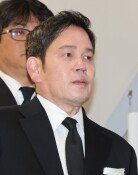Kim Tae-hyo’s comments on ‘Japan’s heart’ face bipartisan criticism
Kim Tae-hyo’s comments on ‘Japan’s heart’ face bipartisan criticism
Posted August. 21, 2024 07:47,
Updated August. 21, 2024 07:47
Controversy continues to simmer over the remarks made by Kim Tae-hyo, first deputy director of the National Security Office, regarding Japan’s stance on its historical actions where he stated that "what’s important is Japan’s heart," which immediately sparked widespread criticism. Lee Jae-myung, leader of the Democratic Party, countered by saying, "What the President's office should be mindful of is the heart of the South Korean people." Even within the ruling People Power Party, there has been pushback. "It likely wasn't intended to imply that Japan's position is much more important," Han Dong-hoon, the chair of the PPP, remarked. "What’s crucial is the sentiment of the South Korean people."
The controversy arose after President Yoon Suk Yeol's Liberation Day speech, in which he did not mention Japan’s view on its historical misdeeds. In a subsequent interview, Kim commented, "Is it truly genuine an apology if it was earned by forcing someone who doesn’t mean it?" His remarks were interpreted as suggesting that there is no point in demanding an apology from Japan if a sincere one is unattainable. As the backlash grew, the presidential office clarified that Kim meant South Korea should strive to move Japan's heart. However, the controversy was fueled further when another presidential official commented that Japan is “fatigued from issuing dozens of apologies," seeming to sympathize with Japan's perspective on historical issues.
Being oblivious to the past does not help in progressing towards the future. Japan has repeatedly undermined its own apologies by allowing top officials to make inflammatory statements denying or distorting issues such as wartime sexual slavery, forced labor, and territorial disputes over Dokdo. During Shinzo Abe's administration, there were attempts to revise the Kono Statement, which acknowledged the forced nature of wartime sexual slavery, and related content was removed from approved textbooks. This is why South Korea feels compelled to continue demanding sincere apologies and reflection from Japan.
South Koreans naturally fear that the government’s approach to improving relations with Japan might be perceived as an attempt to overlook the atrocities committed during Japan’s colonial rule. Such remarks not only risk undermining the government’s efforts to build a forward-looking relationship with Japan but also alienate its domestic support base. The demand for an apology from Japan is not about settling old scores; rather, it is about ensuring that Japan, now pursuing a more assertive national defense policy, remains on the right path. The sentiment that "what’s important is Japan’s heart" should have been used to call on Japan to offer a genuine apology, not to downplay the concerns of the South Korean people.
Headline News
- Joint investigation headquarters asks Yoon to appear at the investigation office
- KDIC colonel: Cable ties and hoods to control NEC staff were prepared
- Results of real estate development diverged by accessibility to Gangnam
- New budget proposal reflecting Trump’s demand rejected
- Son Heung-min scores winning corner kick







